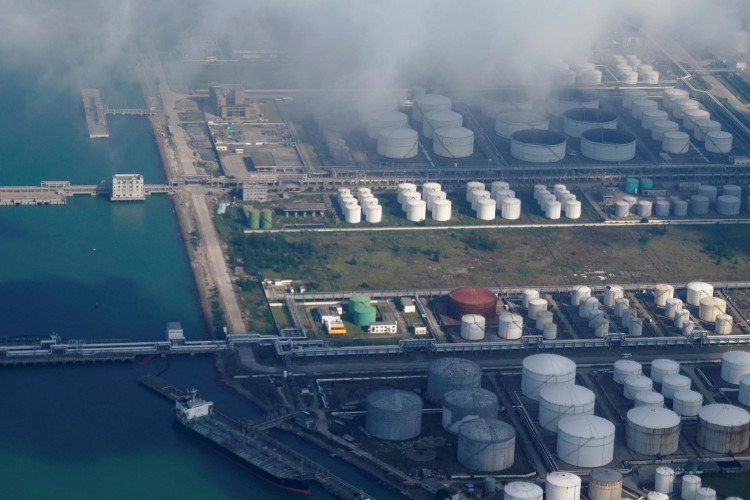Oil was pegged close to $33 per barrel as mounting clash of words between China and the US triggered widespread caution regarding the possibility of demand in the world market.
On Sunday, China warned that some personalities in the U.S. were pushing the nations into the brink of a new Cold War, fanning fears that worsening ties between Washington and Beijing could disrupt the oil sector's recovery from a monumental plunge in consumption.
Stock futures were also slightly up on Wall Street after dropping earlier, with stock trade volumes limited as a result of holidays in the US and UK.
On Friday, oil prices dropped by about 2 percent over rising China-US tensions and concerns about how fast demand for fuel will recover from the coronavirus crisis.
The demand for fuel has plunged in recent months, as the pandemic has forced governments to enact travel restrictions and companies have closed their doors. Oil has recovered in the last few days as activity begins to resume.
But prices fell after China said for the first time on Friday it would not publish an annual growth target. Beijing also pledged more government spending, as the pandemic began to hit the economy.
According to data from the National Bureau of Statistics, China's fuel oil production saw a robust growth in April. Fuel oil output skyrocketed to 3.09 million tons, the data showed, 68 percent year on year.
Meanwhile, the country's diesel production increased 1.3 percent from a year earlier to 13.39 million tons, while liquefied petroleum gas increased 15 percent last month to 3.78 million tons.
Bucking the trend, year-on-year gasoline output fell to 10.04 million tons, while production of kerosene dropped 42.9 percent to 2.42 million tons.
Meanwhile, Wall Street ended up mixed in a relatively calm finish to a week of strong gains, as investors looked at China-US tensions and growing confusion about the rate of coronavirus economic recovery.
United States President Donald Trump 's warning on Thursday that the US will respond strongly to China's proposal for a Hong Kong national security law has increased fears about the prospect of Washington and Beijing reneging on their Phase 1 trade agreement.
There are signs however that the oil market is preparing itself for recovery. US shale drillers have reduced the number of active rigs to the lowest since 2009, further trimming the output. This comes as OPEC+ slashes production by nearly 10 million barrels per day to reduce a surplus.





